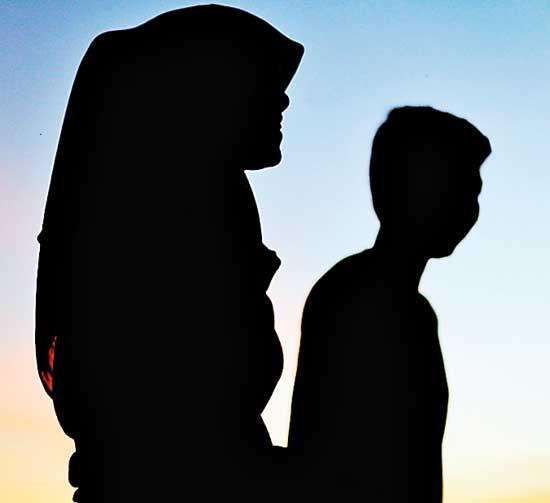Reply To:
Name - Reply Comment

The Muslim Marriage and Divorce Act (MMDA) has been in the news for the past few years regarding reforms to the act. Some of the reforms presented include raising the minimum age of marriage upto 18 with no exceptions, allowing female quazis, making registration of marriages compulsory after the nikah ceremony. However, as of recent, it has been on the news due to Ven. Athuraliye Rathana Thera’s bill to repeal it and the Kandyan Marriage and Divorce Act. This created a public debate on social media, particularly regarding the MMDA repeal. Media reports say that the bill was apparently presented to solve the issue of underage forced marriages in Muslim society.
The Muslim Personal Law Reform Action Group (MPLRAG) which has been lobbying for MMDA reforms since 2016 shared their views in an interview with Daily Mirror. 
“We are really concerned about the efforts to repeal the MMDA. It is highly likely that current attempts to repeal will be rejected by parts of the Muslim communities and the backlash will be significant,” said Hyshyama Hamin, a women’s rights activist attached to the MPLRAG.
Being a part of Musawah, an international organisation that researches and advocates for equality and justice in Muslim family laws globally, she revealed that research conducted in countries like Nepal and Mauritius with a significant Muslim minority and where the Muslim marry under the civil law- highly discriminatory Muslim marriage practices still continue outside the legal system. “In these countries, Muslims mostly tend to marry under their own version of the Muslim personal law because there is no codified Muslim law that establishes standard provisions and procedures.
These practices differ from village to village, community to community. Religious scholars with their own patriarchal ideologies and misunderstanding of Islamic law are involved in interpreting marriage and divorce practices. Such marriages are unregistered and later on wives and children have no access to vital documentation or to formal courts.”
Ermiza Tegal, a human rights lawyer, shared similar sentiments and added that customary traditions have been misused and abused resulting in severe human rights violations. “Lack of legal frameworks recognising and addressing abusive practices meant that those engaging in such practices continued unchecked. Legal reform can be an ingredient of social change.
Triple talaq, child marriages, unregulated polygamy are corrupted interpretations of customary or religious rights. These cause severe human rights violation.” She went on to explain that when marriages are unregistered, it becomes easier for the man to leave his wife and children and the woman is unable to recover maintenance and other benefits of a recognised union.
"The limited grounds for divorce creates emotionally charged, defensive, vindictive and adversarial family relations with children being often the most affected. Also, there is no family court setting which means divorce cases take place in public reducing the chances of conciliatory settlements, causing discomfort and emotional distress to the couple"
 They shared that Muslim women have been seeking to reform the MMDA for the past three decades so that it is just and equal to all, regardless of the gender.
They shared that Muslim women have been seeking to reform the MMDA for the past three decades so that it is just and equal to all, regardless of the gender.
“Repealing the MMDA is not the answer for the issues faced by Muslim women due to the MMDA. It is highly likely that repealing it will only cause these issues to go underground and worsen.
Women’s rights will be further violated and that is our biggest concern,” informed Ms. Hamin.
It has been seen that though the Muslim women have been lobbying for more than three decades regarding reforms, a deaf ear has been turned to them by male Muslim leaders.
This has led to the MMDA not yet being reformed. “And now, another male leader from another community is doing the exact same thing. He says that he is doing this for the betterment of Muslim women but Muslim women did not ask for repeal. We asked for reform. While this repeal is said to be coming from a place of concern, it appears racist, anti minority and will lead to further marginalization of the Muslim community,” shared Ms. Tegal.
Ms. Tegal revealed that just because the MMDA would be repealed, it didn’t mean that the Muslims could immediately marry under the General Marriage Ordinance Act (GMRO). She explained that another bill would have to be passed to amend the GMRO to allow Muslims to marry under it. A bill to this effect has been tabled in the parliament by Dr. Thusitha Wijemanne. “GMRO also needs reforms; it’s not perfect in itself. Under the GMRO, divorce procedures are costly and people from poorer families won’t be able to secure justice in cases.
There are instances of vulnerable female litigants being subject to harassment, including sexual harassment by those involved in the legal process. The limited grounds for divorce creates emotionally charged, defensive, vindictive and adversarial family relations with children being often the most affected. Also, there is no family court setting which means divorce cases take place in public reducing the chances of conciliatory settlements, causing discomfort and emotional distress to the couple.”
"It has been seen that though the Muslim women have been lobbying for more than three decades regarding reforms, a deaf ear has been turned to them by male Muslim leaders"
While it has been seen that Muslim women have been actively lobbying for reforms, Muslim males have largely stayed silent on the matter. But, ever since the bill for repeal was presented, Muslim males have voiced out their opinions regarding the MMDA on various social media platforms.
Zainul Murshid, a corporate communications consultant, opined that reforms in the MMDA is very much necessary. “I am not sure if Muslims really need their own marriage and divorce laws as I don’t have enough theological or legal knowledge to answer that,” he added.
Twitter user @LankanLad too opined that the MMDA is in dire need of reforms yet the opposition shown by Sri Lankan Muslim theologians and the lack of enthusiasm shown by Sri Lankan politicians hampered the reform process. “I support some of the reforms because many Muslims are affected due to the inequalities in the MMDA, especially the women,”
Hejaaz Hizbullah, a lawyer stated that the repeal of the MMDA could have disastrous consequences for Muslims and it can cause many legal and human rights issues if marriages take place according to non-codified customary laws. “The MMDA is very much necessary for the Sri Lankan Muslims. After the repeal of MMDA, what next? It is an integral part of the Sri Lankan Muslim identity and culture,” he said adding that the MMDA has to be reformed.
Studies conducted internationally has shown that when customary laws are repealed, unregulated non-codified customary practices take place and this could lead to significant human rights violation. Already due to the MMDA, Muslim women’s rights are being challenged and activists believe that the repeal of the MMDA will only lead to further abuse of women’s rights. They believe that would lead to complex issues which will be complex to resolve even legally due to the lack of legal framework.